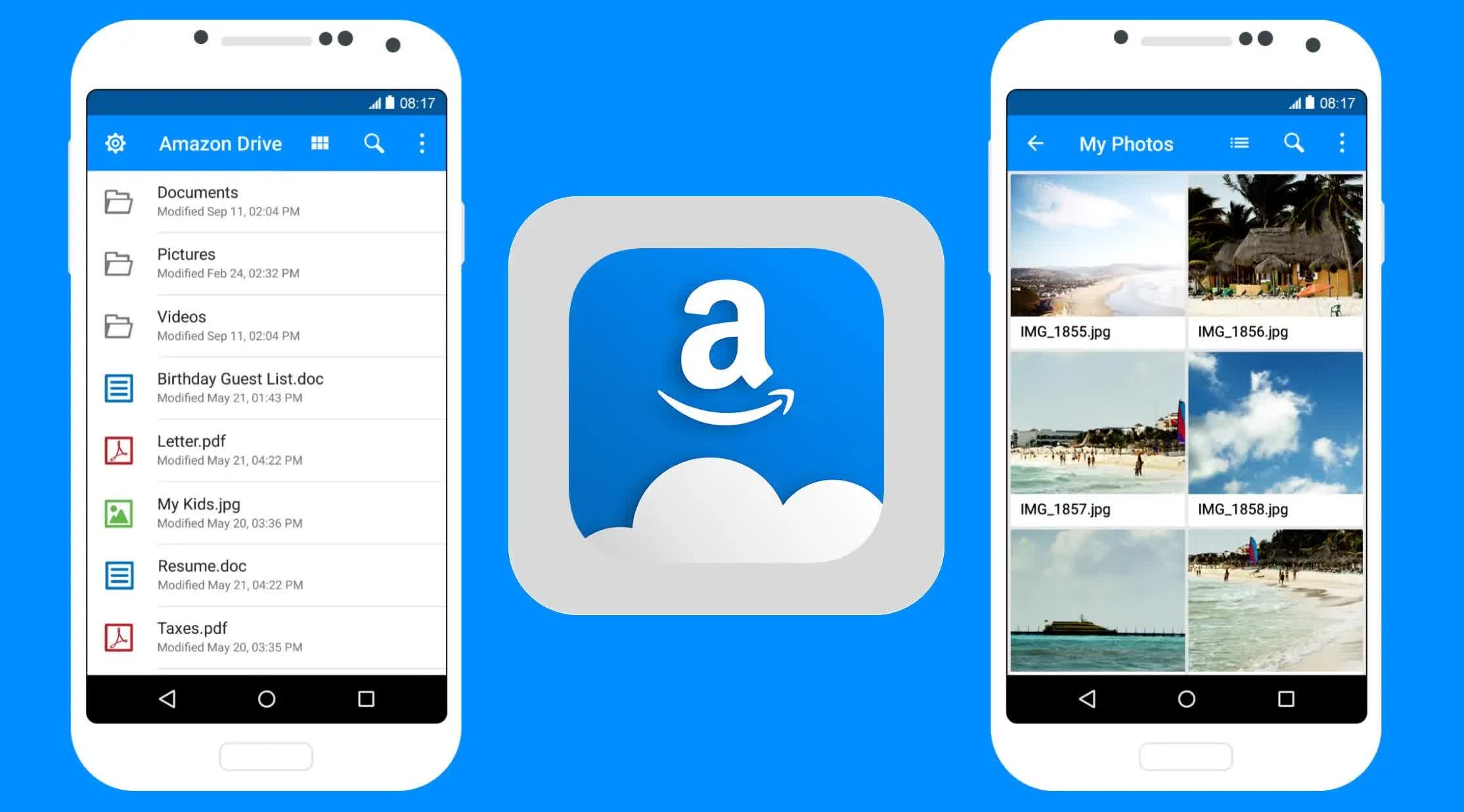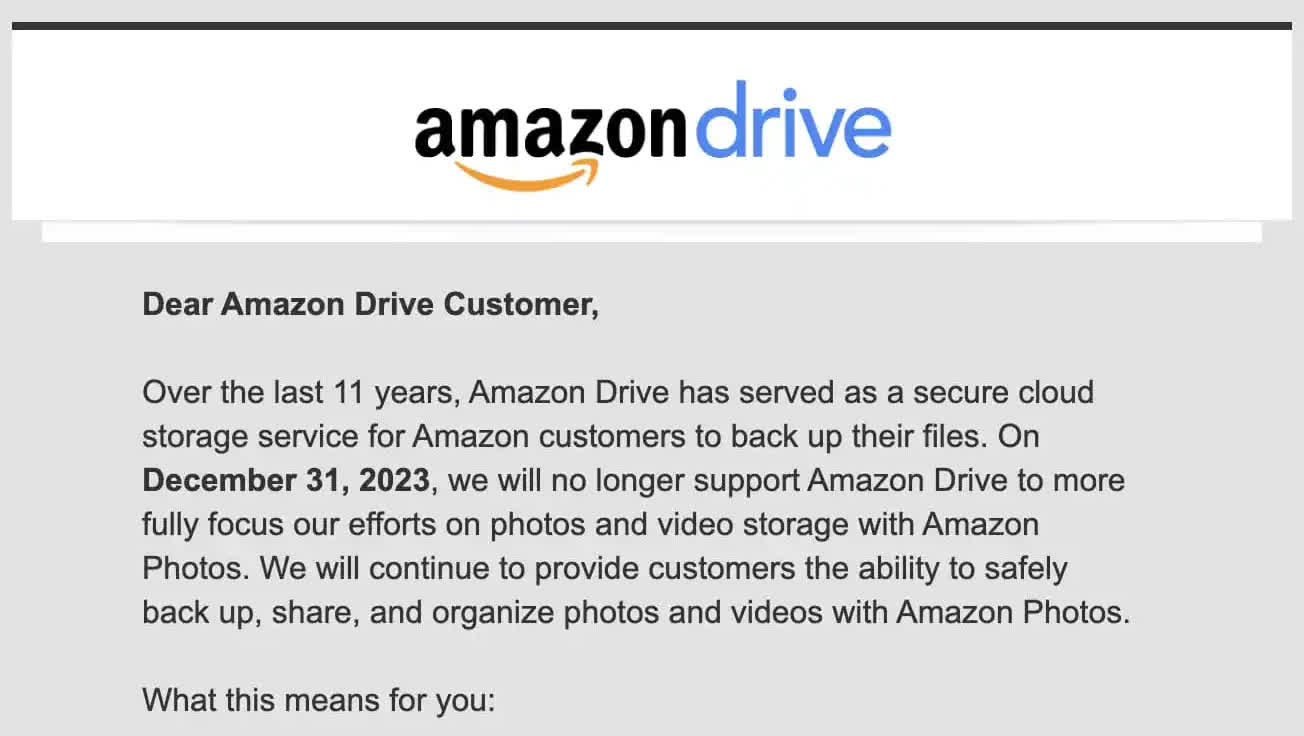What just happened? Amazon is doing away with Drive, the cloud storage service it launched over a decade ago. In a statement e-mailed to Amazon Drive customers, the e-commerce giant said it will stop supporting the service at the end of next year in order to focus its efforts on photo and video storage through Amazon Photos.

Drive arrived in 2011 as Cloud Drive, a service the company billed as a hard drive in the cloud to store music, pictures, videos, documents and more. It debuted with 5GB of complimentary space, and MP3s purchased from Amazon didn't count towards a user's quota.
In 2015, Amazon rolled out an unlimited storage tier priced at $60 per year and an unlimited package just for photos that sold for $12 annually. The unlimited photos plan was only for non-Prime members; those with a paid Prime membership already had access to unfettered image storage through Prime Photos.

Amazon dropped the unlimited plan in mid-2017 and replaced it with two paid tiers. The first afforded 100GB of storage for $12 per year while the other granted 1TB for the same $60 / year as the outgoing unlimited package. Nowadays, Prime members get unlimited full-resolution photo storage, 5GB of space for videos and free shipping on prints as part of Prime.
Existing Amazon Drive users should note that there's still plenty of time to act. According to this FAQ, the Amazon Drive app for Android and iOS will remain in their respective app stores until October 31, 2022. The service will still work normally until January 31, 2023. At that time, Amazon will disable new file uploads but customers will still be able to view existing files.
The official end date for Drive is set for December 31, 2023. After this date, customers will no longer have access to files stored on Drive.
Related Reading: Check your backup storage and strategy
It's also worth mentioning that photos and videos in Amazon Drive have been automatically saved to Amazon Photos. "After December 31, 2023 you can continue using Amazon Photos to access your photos and videos," the FAQ reads.
https://www.techspot.com/news/95469-amazon-killing-drive-cloud-storage-service-focus-photos.html